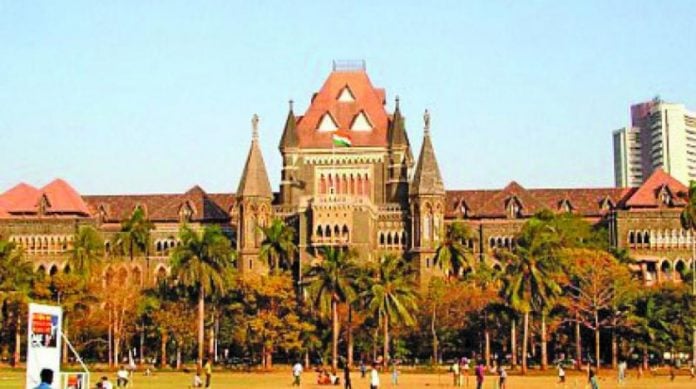The Bombay High Court imposed a cost of one rupee on the Petitioner and dismissed a Public Interest Litigation (PIL) filed alleging some guidelines framed by the State of Maharashtra vide its Government Resolution dated 24/04/1985 relating to the place of origin of the persons belonging to Mahadev-Koli, Schedule Tribes.
The plea stated that the petitioners are not being issued any tribe certificate by the competent authority due to the above said guidelines.
According to the Counsel for the Petitioners, these guidelines are illegal as they amount to imposing area restrictions upon the persons desirous of obtaining caste/tribe certificate from the competent authority, when the area restrictions have been removed long back.
It is also his submission that there was a Report submitted by Dajiba Parbat Patil, Committee who was Deputy Chair Person, Legislative Council in the year 1986, making various recommendations, one of them being of devising an easier and less complicated system of issuance of Schedule Tribe certificate and cancellation of the Government Publication, Tribes of Maharashtra, 1982, with a direction to not use it as a reference book.
Ketki Joshi, Additional Government Pleader for the State contended that this petition is not maintainable as what is being espoused on the pretext of public interest litigation is a personal grievance of the petitioners, the grievance that the petitioners are not being issued any tribe certificate because of the guidelines prescribed in G. R. dated 24/04/1985.
She also submitted that it is for the Government to decide to accept or reject the recommendations of any Committee and the person like the petitioners cannot seek any mandamus to the State for accepting those recommendations. She further submits that after the 1986 Report of Dajiba Patil Committee, new Act, following the judgment of the Apex Court in the case of Kumari Madhuri Patil vs. Additional Commissioner Tribal Development, reported in AIR 1994 SC 94 came into force and the Act is called as “The Caste Certificate(Issuance and Verification) Laws in Maharashtra” (the Act of 2000) which prescribes a detailed procedure for issuance of caste/tribe certificates and their validity and therefore, now the Dajiba Patil Committee Report has lost it’s relevance.
The Nagpur Division Bench of Justice Sunil B. Shukre and Justice M.W. Chandwani is of the view that there is great substance in the submissions of Additional Government Pleader and no merit in the arguments of learned counsel for the petitioners for several reasons.
Firstly, the petitioners on the pretext of filing a public interest litigation are basically pursuing their own cause, which is evident from the fact that petitioners are personally aggrieved by non-issuance of tribe certificates to them, which is the submission of their learned counsel. Of-course, in the body of petition, no such specific averment is made. But, the real intention behind this petition has now been revealed by counsel for the petitioners, which is to achieve a private purpose. For such a purpose, the petitioners would always be at liberty to take recourse to an appropriate remedy, if advised. But, under no circumstances, the petitioners would be entitled to raise the issue through a public interest litigation, which is really an issue of private nature ,observed the Court.
Secondly, The Court observed that the guidelines contained in the G.R. dated 24/04/1985, which dwell upon the places of origin of Mahadev Koli tribals do not impose any area restrictions for deciding the tribe claims. They are only in the nature of the predominant presence of Mahadev Koli tribals in certain districts like Pune, Thane, Raigad, Nashik and Ahemadnagar. These guidelines only provide information about the dominant presence of Mahadev Koli tribals in these districts. They do not say that except for these districts, Mahadev Koli tribals are not found anywhere else. Therefore, the argument that these guidelines are illegal does not hold any water. If there is any person who is aggrieved by some or the other interpretation of these guidelines by a particular scrutiny committee, he would be always at liberty to approach this Court by invoking writ jurisdiction of this Court under Article 226 of the Constitution of India.
Thirdly, the Dajiba Patil Committee Report, with coming into force of the Act of 2000, has lost its relevance. Even otherwise, it is for the State Government to take a decision regarding acceptance or part acceptance or rejection or part rejection of recommendations of any Committee. The petitioners have not placed on record any material showing that the aforestated report has been expressly rejected by the State Government.
There is also an argument about making of some representation to the Government by the petitioners to air their grievances. But, the Court found that the representation relied upon by the counsel for the petitioners is not the one which is sent by the petitioners. The petitioners have also not contended that what is stated in the representation sent by some different persons is endorsed to by them and that their grievance is the same. This would provide additional reason to us to reject the petition, the reason of the petition having been filed without there being any cause of action insofar as the present petitioners are concerned, there being no rejection of their representation , the Court held.
On the above grounds, the High Court found that this petition is not maintainable and in fact is an abuse of the process of Court and therefore, it is necessary that the petition is dismissed with some costs.
“The petition stands dismissed with costs of Rs.1/- which shall be paid by the petitioners within two weeks from the date of the order; failing which the petitioners shall pay costs of Rs.10,000/- [Rs.Ten Thousand only] within next two weeks and failing which the Registrar (Judicial) shall cause initiation of appropriate proceedings for recovery of final costs of Rs.10,000/- by treating them as arrears of revenue”, the order reads.


